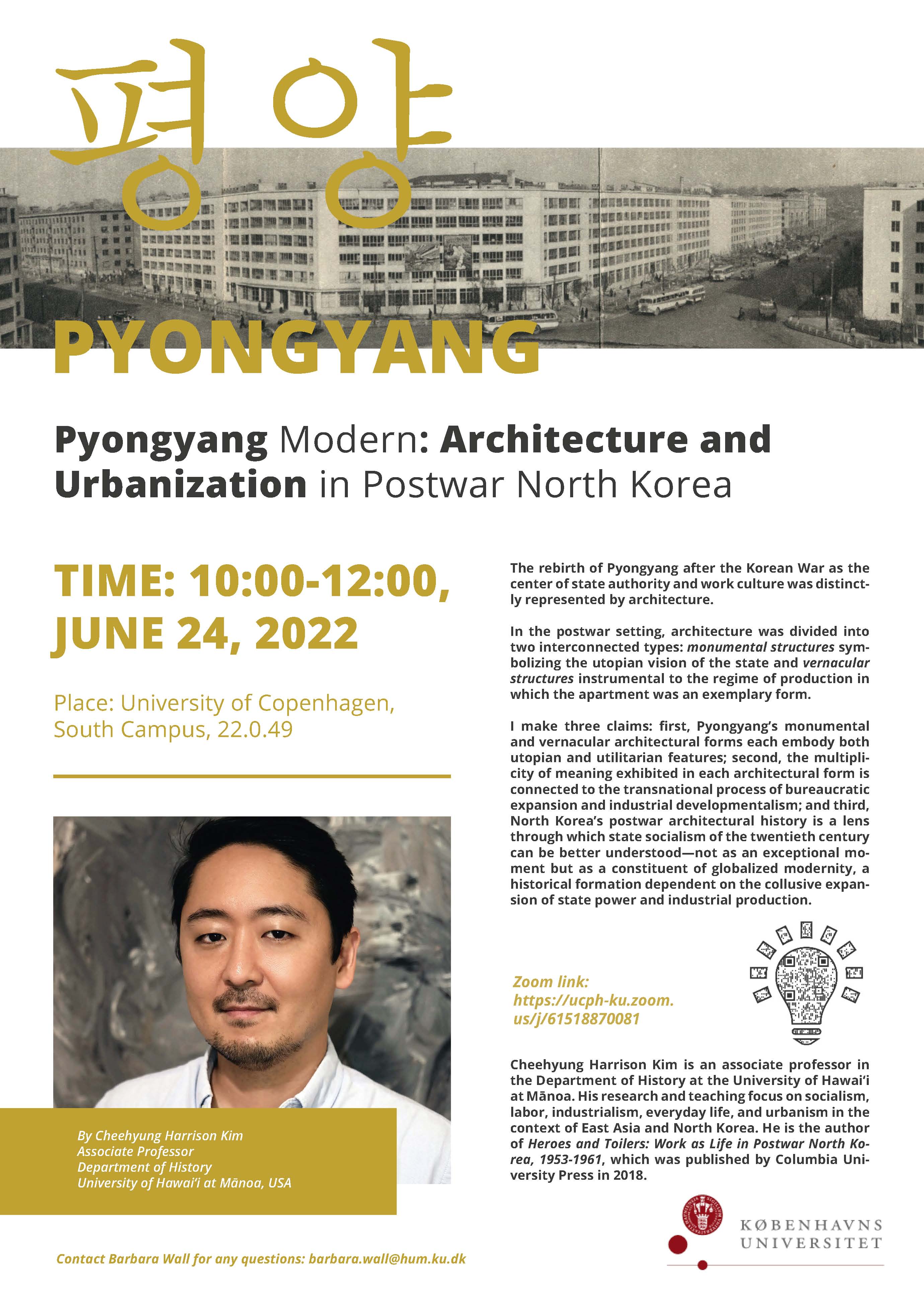time zone will be applied.
Report this post?

The rebirth of Pyongyang after the Korean War as the center of state authority and work culture was distinctly represented by architecture. In the postwar setting, architecture was divided into two interconnected types: monumental structures symbolizing the utopian vision of the state and vernacular structures instrumental to the regime of production in which the apartment was an exemplary form. I make three claims: first, Pyongyang’s monumental and vernacular architectural forms each embody both utopian and utilitarian features; second, the multiplicity of meaning exhibited in each architectural form is connected to the transnational process of bureaucratic expansion and industrial developmentalism; and third, North Korea’s postwar architectural history is a lens through which state socialism of the twentieth century can be better understood—not as an exceptional moment but as a constituent of globalized modernity, a historical formation dependent on the collusive expansion of state power and industrial production.
Cheehyung Harrison Kim is an associate professor in the Department of History at the University of Hawai‘i at Mānoa. His research and teaching focus on socialism, labor, industrialism, everyday life, and urbanism in the context of East Asia and North Korea. He is the author of Heroes and Toilers: Work as Life in Postwar North Korea, 1953-1961, which was published by Columbia University Press in 2018.